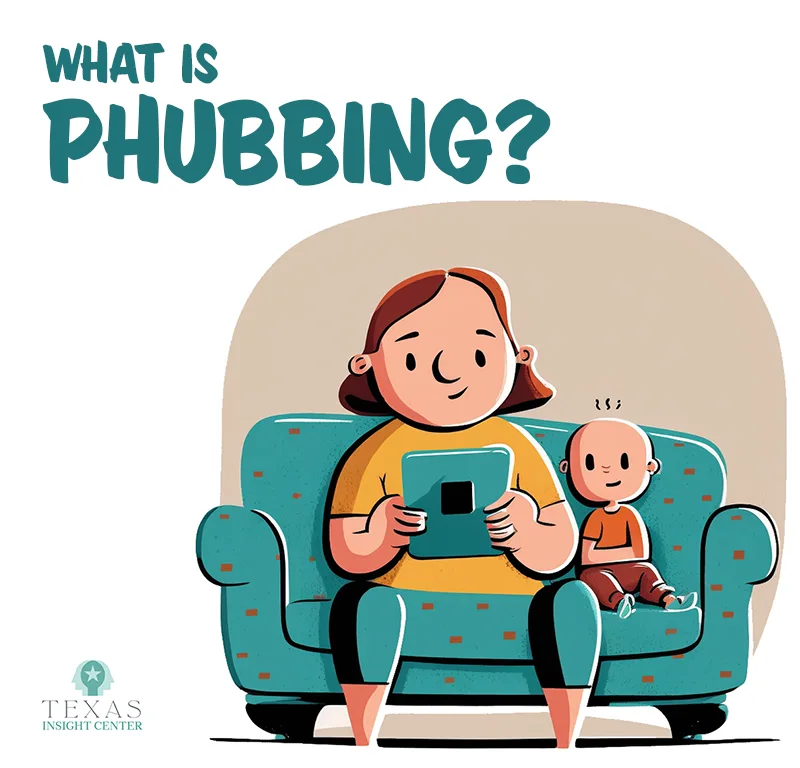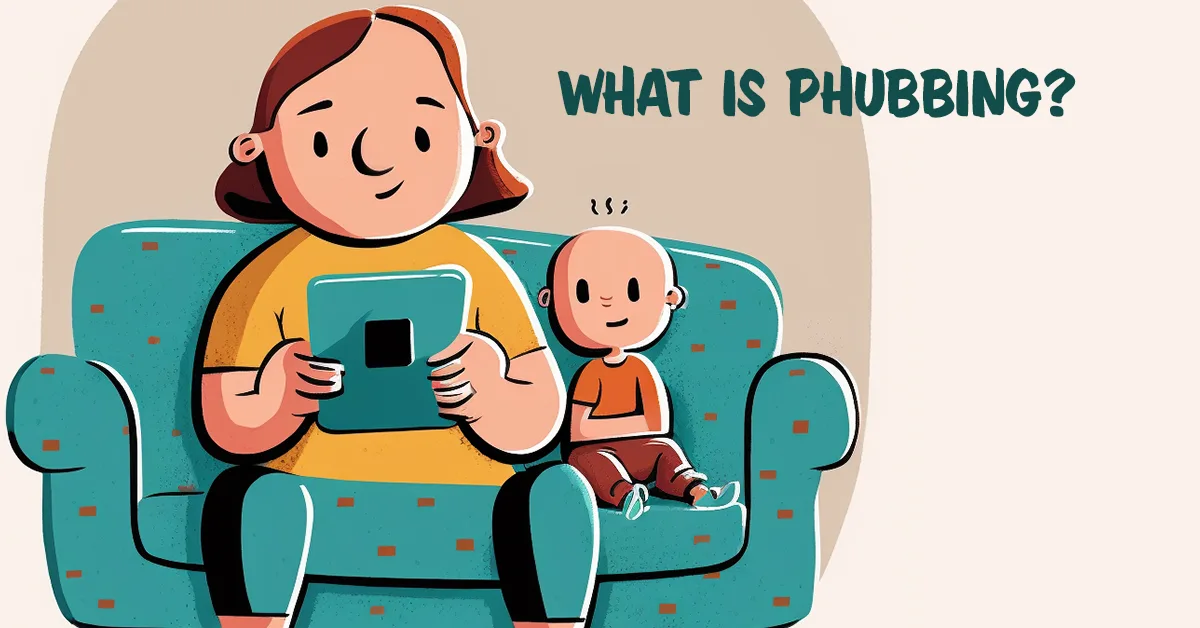
What is Phubbing? It is a funny sounding word. Phubbing is derived from the words “phone” and “snubbing,” referring to when someone ignores another person in favor of their phone. The word originated in 2012 at Sydney University in Australia. If you want to know more about how the word was developed, there is a short documentary about the word phubbing on youtube.
Phubbing and Child Development
Parental phubbing is when a parent pays attention to their mobile phone during parent-child interactions, ultimately causing a child to feel neglected and unsupported emotionally. While that may seem a little harsh, many scholars recognize that ignoring a child’s emotional cues in their early life stages can have a long-lasting social and emotional effect. One of the youngest Ted Talk presenters, Molly Wright, discusses the importance of connection during the first few years of a child’s life. In this video, she shows a great example of parental phubbing.
Child neglect at an early age can lead to problems with behavior, emotional regulation, and self-esteem. When we look at neglect on a spectrum, different intensities can be more severe than others. No parent wants to think they are neglecting their child, but phone usage has become so normalized in our daily lives that parents may not even be aware of its impact on their kids. Furthermore, being a parent is hard, and we can’t always focus all our attention on our children all of the time. Parental phubbing can become problematic when it repeatedly occurs over a longer period.
Phubbing and Adolescents
Over the last 10 years, researchers have learned more about the impact of phubbing on teens. Childhood adolescence is generally the phase of development between 10 and 19. Teens today were roughly between birth and 9 years old when the term phubbing came about. This is an important fact to consider when we look at mental health research in this age group.
Studies have shown that early childhood parental phubbing can lead to adolescent depression, anxiety, peer alienation, and suicidal behaviors. In addition, some studies have indicated that female adolescents are more vulnerable to the impact of phubbing.
Another area of concern is that parental phubbing can increase the likelihood of adolescents becoming addicted to social media and their phones. We also recognized that excessive phone usage in teens could lead to depression and isolation. All unbiased research aside, I am no fan of social media. It just feels icky, but it is required to run any business in the world today. However, we still must be diligent in how children use their phones and social media.
OMG! TikTok
I know two people in my life that do not have any form of social media, and it’s pretty clear they are outliers. I couldn’t tell you if they are happier, but they are headstrong in their beliefs and two very talented psychotherapists. Do I have TikTok? Yes. Do I look at it daily? Yes. Do I like it? Sometimes, but because of how apps like TikTok work, I only see what an algorithm wants me to see. I honestly have no idea what my kids could be seeing. Whether or not you have TikTok is irrelevant as an adult but significant if you are a parent of an adolescent. That becomes concerning when we look at the population of people that use TikTok.
In January of this year, 32% of TikTok users were between 10 to 19, and 60% of those users were female. This means that a very vulnerable population is using TikTok. When comparing these trends to those of suicidal behaviors, we see some scary patterns in the state of mental health for teens. According to the CDC, 1 in 4 girls has seriously considered suicide in 2021. This is a 60% increase since 2011, and the trend continues to rise. While apps like TikTok do little more than push content, kids subjected to parental phubbing have a higher likelihood of their use becoming problematic.
Parenting in 2023
Parenting over the last 20 years has been challenging with technological advancement, COVID, and, more recently, the growth of artificial intelligence. Our kids are right there with us, trying to figure it out every day in the best way possible. Putting your phone away makes you available for them no matter their age. Prioritizing personal engagement with your children builds better adults that are healthier and happier.
If you or someone you know is struggling with thoughts of suicide, please call the suicide hotline at 988 or 911 for an emergency.
Call Now
Or fill out a contact form

